The Asian Development Bank lowered China’s 2019 growth forecast from 6.4% to 6.3%. For 2018, growth projection was kept unchanged at 6.6%. It cited “slower demand growth and an unfavorable trade environment” as the reasons for the downgrade. On US-China trade conflict, ABD said it could “deflate consumer and investor confidence, severely disrupt supply chains, impede technology transfer and foreign investment, and hit export-oriented industries in the PRC. ”
ADB Chief Economist Mr. Yasuyuki Sawada said, “services and consumption will continue lifting the PRC’s economy for the rest of 2018 although slower growth is expected next year, as ongoing trade tensions with the United States (US) are expected to affect net exports.” He added that “supportive monetary and fiscal policy will help ease the short-run strains” But also urged that “continued reform progress is needed to sustain future growth.”
Looking at the details, net exports are expected to hold back GDP growth for the rest of 2018 and 2019 as ” trade tensions with the US continue to intensify, coupled with a dimmer outlook on global trade and investment activities.” ADB expected current account surplus of China to lower to 0.7% in 2018 and further down to 0.2% in 2019.
For developing Asia as a whole, growth in 2018 is expected meet 6.0% forecast. However, 2019 growth projection was also trimmed by -0.1% to 5.8%. The US-China trade measures implemented by September 24 are expected to lower China GDP by -0.5% and US GDP by -0.1%. And they would have a “negligible effect on the rest of developing Asia”. It also noted that “with the trade conflict escalation, the US trade deficit with the PRC would shrink, but the overall US trade deficit would not change much as US imports would be redirected to other countries while US exports to the PRC declined.”
Also, ADB warned that “prolonged trade conflict can damage confidence and deter investment. This indirect fallout will be large for many economies in the region and globally, especially if automobiles and other parts become embroiled in the trade conflict.”
ADB’s press release on China here.
The Asian Development Outlook 2018 update here.




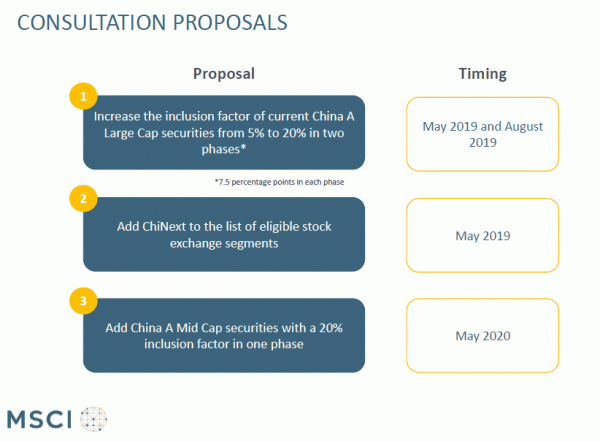
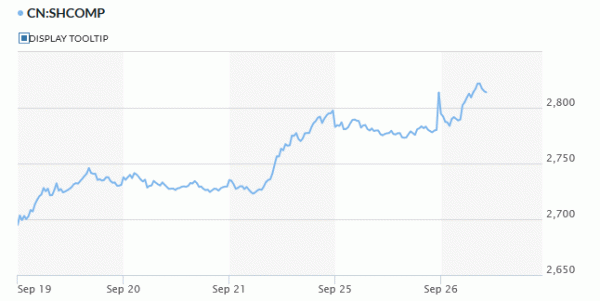
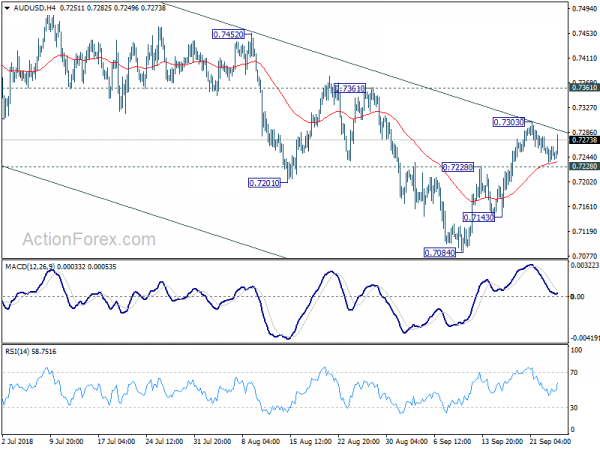
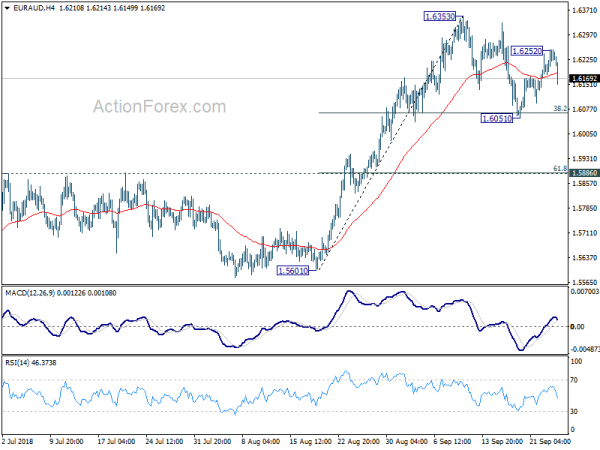
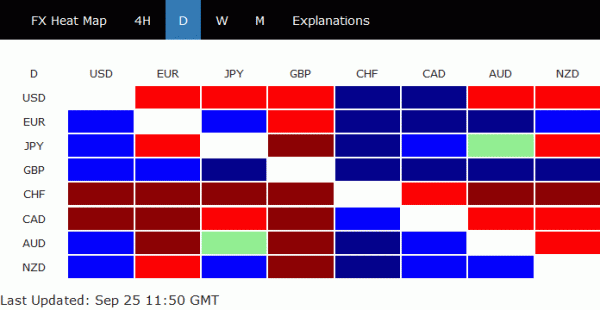
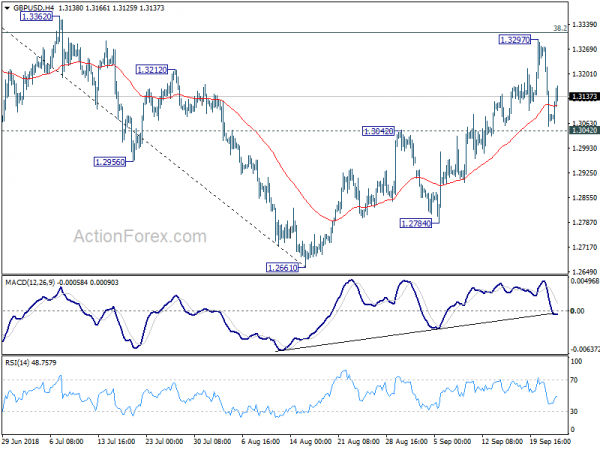
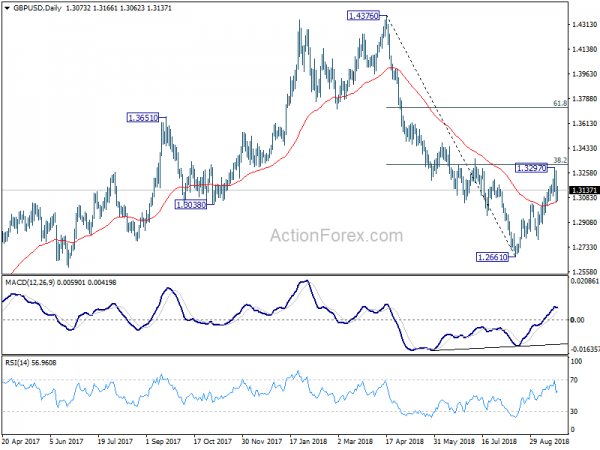
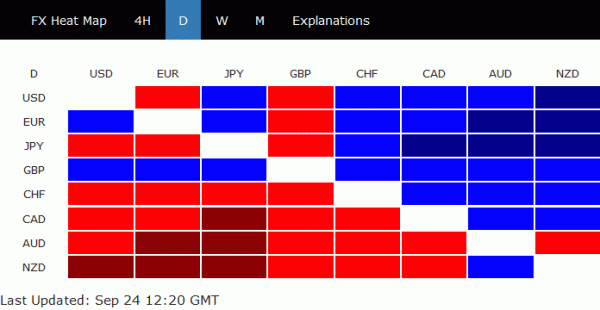
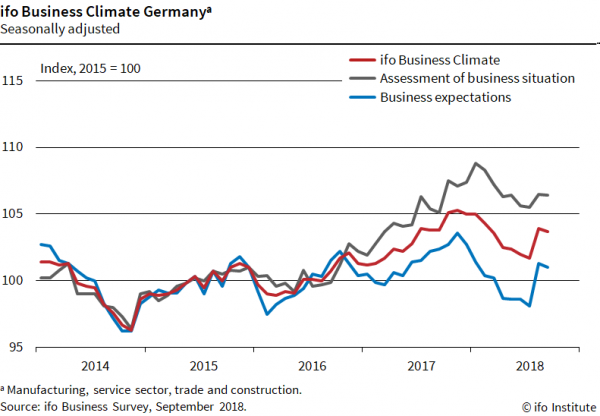
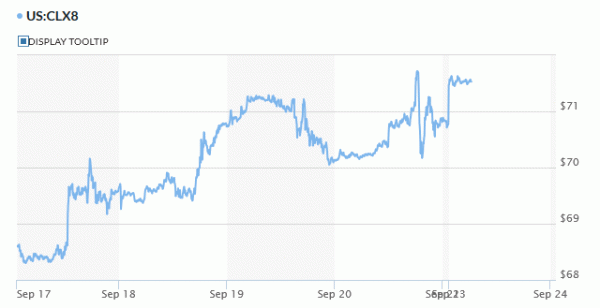

New Zealand ANZ Business Confidence jumps, but no change in RBNZ’s tune
New Zealand ANZ Business Confidence had a notable bounce by 12 pts to -38 in September. While’s it’s still a negative reading, it’s already the highest level since May. Own activity index also rose 4 pts to 8.
ANZ noted in the release that It is encouraging that nearly all activity indicators out of the ANZ Business Outlook survey rebounded this month, with only investment intentions deteriorating further. The growth signal coming out of the survey remains weak, certainly. But if the indicators continue to rebound, it will increase the odds that while the economy may have hit a pothole, the wheels are not falling off.
On RBNZ, ANZ said the Reserve Bank made it clear in the August Monetary Policy Statement that they believe the economy needs to accelerate to get inflation sustainably back to the target midpoint in an acceptable timeframe. We expect that at the OCR Review this week the message will therefore continue to be that the next move in the Official Cash Rate “could be up or down”, despite the stronger-than-expected June quarter GDP outturn.
Full release here.